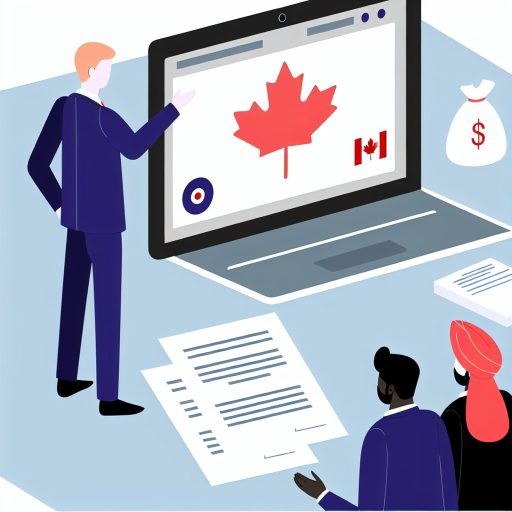Introduction to Legal Consulting in Business Compliance
Role of Legal Consultants in Business Compliance
Legal consultants guide companies through complex regulatory environments.
They help businesses understand and adhere to relevant laws effectively.
By offering expert advice, they minimize risks related to non-compliance.
Moreover, consultants tailor strategies to fit each company’s unique needs.
For example, Caldwell Legal Advisors supports tech startups in data privacy laws.
Similarly, Harrison & Pierce Associates counsel manufacturing firms on safety regulations.
Importance of Compliance for Businesses
Compliance ensures businesses operate within legal frameworks consistently.
It protects companies from fines, lawsuits, and potential shutdowns.
Additionally, compliance builds trust with customers and investors alike.
Non-compliance can damage a firm’s reputation and financial stability.
Thus, legal consultants play a critical role in sustaining long-term success.
Areas Covered by Legal Consulting in Compliance
Consultants address a broad range of compliance areas for businesses.
These include labor laws, environmental regulations, and financial reporting standards.
They also assist with intellectual property protection and contractual obligations.
Furthermore, consultants update companies on changing legislation and standards.
Clients like Everstream Logistics rely on consultants to navigate international trade rules.
Benefits of Engaging Legal Consultants Early
Engaging legal consultants during business planning prevents costly mistakes later.
Early advice helps embed compliance into daily operations seamlessly.
This proactive approach reduces the chance of regulatory penalties.
It also enhances operational efficiency and competitive advantage.
For instance, Silvergate Retail integrated counsel from Larson & Fields for regulatory readiness.
The Role of Legal Consultants in Understanding Regulatory Frameworks
Clarifying Complex Regulations
Legal consultants analyze complex laws to help businesses understand their obligations.
They break down regulations into clear, actionable terms for company leaders.
Consequently, employees can follow rules more effectively across departments.
Emily Gallagher, a consultant at Sterling Legal Advisors, specializes in healthcare regulations.
Unlock Your Career Potential
Visualize a clear path to success with our tailored Career Consulting service. Personalized insights in just 1-3 days.
Get StartedShe guides medical companies through intricate compliance requirements successfully.
Keeping Businesses Updated on Legal Changes
Regulatory frameworks evolve constantly, and companies must adapt promptly.
Legal consultants monitor new laws from government agencies and regulatory bodies.
They provide timely updates to ensure client compliance remains intact.
For instance, Marcus Lee from Horizon Legal Consulting alerts fintech firms about data privacy changes.
His work prevents costly violations and reputation damage due to outdated compliance.
Advising on Industry-Specific Regulations
Different sectors face unique regulatory challenges based on their operations and location.
Legal consultants tailor advice to a company’s industry, such as manufacturing, finance, or retail.
They identify relevant laws and help mitigate risks accordingly.
Olivia Martinez advises construction companies on environmental and safety standards.
Her insights reduce legal exposure and promote sustainable business practices.
Supporting Risk Management Strategies
Legal consultants assist in developing compliance programs to minimize legal risks.
They assess existing policies and suggest necessary improvements.
This proactive approach helps prevent violations before they occur.
Jacob Winters from Crestview Legal works closely with tech startups to implement internal controls.
His expertise enhances ethical business conduct and regulatory adherence.
Facilitating Communication with Regulatory Authorities
Legal consultants act as intermediaries between companies and regulators.
They prepare documentation and represent clients during audits or inquiries.
Such support eases the burden on business leaders and ensures accurate information delivery.
Rachel Kim at Beacon Legal Services successfully manages regulatory negotiations for energy firms.
This advocacy helps maintain positive relationships with oversight agencies.
Providing Training and Compliance Workshops
Legal consultants organize educational programs tailored to employee roles.
They clarify regulatory requirements and promote a culture of compliance.
Training sessions improve staff awareness and reduce unintentional breaches.
David Sullivan conducts seminars on financial compliance for regional banks.
His sessions empower employees to identify and report potential compliance issues early.
How Legal Consultants Assist in Policy Development and Implementation
Guiding Policy Creation to Meet Regulatory Standards
Legal consultants help companies draft policies that comply with current laws.
For instance, they analyze legislation relevant to industries such as manufacturing and technology.
Moreover, they collaborate with executives to ensure policies reflect business goals.
They frequently update policies to adapt to changing legal requirements.
By doing so, they reduce risks of non-compliance and legal disputes.
Customizing Policies for Business-Specific Needs
Legal professionals tailor policies to fit the unique operations of each company.
At Brenner & Wells Consulting, Sarah Brenner emphasizes personalized policy frameworks.
This approach helps enterprises in finance, retail, and healthcare sectors address specific challenges.
Therefore, businesses receive actionable and practical compliance guidelines.
Supporting Policy Implementation Across Departments
Legal consultants assist in rolling out policies throughout organizational units.
They conduct training sessions to educate employees about new regulations.
James Callahan, a consultant with LawBridge Advisors, leads workshops on ethical business conduct.
Furthermore, they provide resources like compliance checklists and reporting tools.
This support accelerates adoption and ensures consistent policy enforcement.
Monitoring and Updating Policies for Ongoing Compliance
Consultants regularly review policies to keep them aligned with evolving laws.
They alert management when legal changes impact existing procedures.
Consequently, companies stay proactive rather than reactive to compliance issues.
This ongoing oversight helps maintain strong regulatory relationships and reputations.
Enhancing Communication Between Legal and Operational Teams
Legal consultants bridge gaps between legal experts and business units.
They translate complex legal jargon into clear, actionable instructions.
For example, at Harrison Legal Consulting, teams receive tailored memos and FAQs.
Such communication ensures everyone understands their compliance responsibilities.
Therefore, it fosters a culture of transparency and accountability company-wide.
Learn More: Key Skills for Canadian Immigration Consultants
Legal Risk Assessment
Identifying Compliance Risks
Legal consultants begin by thoroughly reviewing business operations.
They identify potential risks related to regulatory and statutory requirements.
For instance, Meridian Legal Advisors analyzed Dalton Industries’ contract protocols.
This process helps uncover gaps in adherence to laws and regulations.
Moreover, they evaluate internal policies to detect areas that need improvement.
Consultants also review past compliance issues to anticipate future challenges.
Using a detailed checklist ensures no critical legal aspect is overlooked.
Mitigating Compliance Risks
After identification, consultants design tailored strategies to manage risks effectively.
They collaborate closely with companies like Hawthorne Manufacturing to implement best practices.
This includes revising internal controls and updating compliance policies.
Additionally, consultants train staff to understand and follow legal requirements.
They use monitoring tools to track ongoing compliance and detect deviations promptly.
In this way, businesses reduce the likelihood of costly legal penalties.
Consultants often recommend periodic audits to maintain a strong compliance posture.
Advantages of Proactive Risk Evaluation
Proactive risk assessment prevents unexpected legal disputes and operational disruptions.
Businesses gain confidence by staying ahead of regulatory changes.
For example, Clearwater Solutions avoided fines through early compliance adjustments.
Furthermore, companies demonstrate their commitment to legal and ethical standards.
This positive reputation helps attract investors and customers alike.
Ultimately, a comprehensive legal risk assessment supports sustainable business growth.
Discover More: Essential Certifications for Canadian Compliance Officers
Training and Education
Building Compliance Awareness Among Employees
Legal consultants play a vital role in educating employees about compliance standards.
They design training programs tailored to the specific needs of companies like Greenfield Technologies.
Typically, these sessions cover relevant laws, regulations, and company policies.
Moreover, consultants use real-world examples to clarify complex compliance concepts.
By doing so, they ensure that employees understand their responsibilities clearly.
This understanding helps prevent inadvertent violations and legal risks.
Implementing Effective Training Strategies
To maximize learning, consultants incorporate interactive workshops and e-learning modules.
For instance, Parkview Legal Advisors developed role-playing exercises for an insurance company.
These exercises allow employees to practice compliance decision-making in safe settings.
Furthermore, consultants encourage regular refresher courses to keep knowledge current.
This approach promotes sustained awareness and adaptation to regulatory changes.
Fostering a Culture of Compliance
Legal consultants emphasize the importance of leadership support in compliance efforts.
Team leaders at Horizon Manufacturing receive special training on reinforcing compliance values.
Such leadership involvement motivates employees to prioritize ethical behavior consistently.
Additionally, consultants advise on establishing clear communication channels for compliance concerns.
This openness helps identify and address issues before they escalate.
Evaluating the Impact of Compliance Training
Consultants work with companies to evaluate the impact of compliance training initiatives.
They use surveys, quizzes, and performance metrics to gauge employee understanding.
Insights from these assessments enable fine-tuning of future training programs.
Ultimately, ongoing evaluation helps maintain high compliance standards across the workforce.
Uncover the Details: Career Opportunities for Aspiring Legal Consultants

Navigating Industry-Specific Compliance Requirements with Legal Expertise
Understanding Regulatory Landscapes in Different Sectors
Legal consultants analyze complex regulations that vary by industry.
They identify specific laws relevant to healthcare, finance, manufacturing, and technology sectors.
For example, Emily Harper advises biotech firms on Food and Drug Administration requirements.
Additionally, consultants keep clients updated on changing legislation and policy shifts.
Such expertise helps companies avoid costly violations and operational disruptions.
Tailoring Compliance Strategies to Business Needs
Specialized legal consultants develop customized compliance programs for each client.
They assess internal processes and identify potential legal risks accordingly.
Marcus Langley, a consultant at Clearview Legal, creates risk management frameworks for fintech startups.
Moreover, these strategies align with both federal and state regulatory demands.
This proactive approach ensures businesses maintain continuous compliance and adaptability.
Implementing Industry Best Practices and Training
Beyond creating policies, legal consultants facilitate compliance training for employees.
They design programs tailored to the operational realities of each industry.
Sophia Chen recently led workshops for a renewable energy company on environmental regulations.
Consequently, businesses foster a culture of compliance and ethical conduct.
Such efforts reduce liability risks and improve stakeholder confidence over time.
Monitoring and Auditing Compliance Performance
Legal consultants conduct regular compliance audits to detect gaps or weaknesses.
They utilize industry benchmarks to measure against best practices and regulatory expectations.
At Stonebridge Advisors, consultant Nathan Cole provides comprehensive compliance reviews for construction firms.
These evaluations highlight areas needing improvement or immediate attention.
Therefore, businesses respond swiftly to regulatory challenges and maintain operational integrity.
Supporting Regulatory Reporting and Communication
Consultants assist in preparing accurate reports for regulatory bodies and stakeholders.
They ensure documentation meets legal standards and deadlines without errors.
For example, Maria Valdez supports pharmaceutical companies in FDA submission processes.
Furthermore, she guides transparent communication strategies with government agencies.
Effective reporting protects companies from penalties and supports positive regulatory relationships.
Find Out More: Education Pathways for Aspiring Legal Researchers
The Importance of Ongoing Compliance Monitoring and Reporting
Continuous Compliance Monitoring
Ongoing compliance monitoring helps businesses stay aligned with legal requirements.
It enables companies like Northgate Technologies to identify risks early.
Moreover, continuous monitoring supports proactive management of regulatory changes.
Legal consultants such as Natalie Rivera play a crucial role in this process.
They implement effective systems to track compliance standards consistently.
Additionally, regular monitoring avoids costly penalties and reputational damage.
Accurate and Timely Reporting
Accurate reporting ensures transparency in a business’s compliance efforts.
Firms like Sterling Financial adopt robust reporting mechanisms advised by legal experts.
Legal consultants guide clients on preparing thorough and timely compliance reports.
These reports help regulatory bodies verify adherence to applicable laws.
Furthermore, reporting supports internal audits and stakeholder trust.
Legal advisors emphasize the importance of meeting all reporting deadlines precisely.
Advantages of Specialized Compliance Support
Expert legal consultants customize monitoring and reporting strategies for each company.
They tailor solutions to industries such as healthcare, finance, and manufacturing.
For instance, Horizon Biotech relies on consultants to maintain FDA compliance continuously.
Consultants also train staff and develop compliance policies with clarity and detail.
This expert support promotes consistent regulatory alignment over time.
Ultimately, it safeguards companies against evolving legal challenges and compliance gaps.
Case Studies of Successful Partnerships Between Businesses and Legal Consultants
Enhancing Compliance at GreenTech Innovations
GreenTech Innovations faced challenges complying with new environmental regulations.
Therefore, they engaged legal consultant Maria Vasquez to guide their compliance efforts.
Maria conducted a thorough compliance audit to identify potential risks.
As a result, GreenTech implemented new policies aligned with legal requirements.
This partnership reduced their regulatory violations and improved public trust.
Moreover, ongoing support ensured GreenTech stayed updated on changing laws.
Financial Sector Compliance at Sterling Capital
Sterling Capital needed to comply with updated financial reporting standards quickly.
So, they hired legal consultant Tyler Henderson specializing in financial regulation.
Tyler designed customized training programs for Sterling’s compliance team.
Consequently, employees became well-versed in regulatory frameworks and processes.
Additionally, Tyler helped establish internal controls that passed rigorous audits.
Thus, Sterling Capital strengthened its reputation for transparency and integrity.
Manufacturing Compliance Success with Riverside Electronics
Riverside Electronics struggled with complex product safety and labor laws.
Therefore, legal consultant Aisha Khan collaborated closely with their management.
She delivered comprehensive compliance manuals and continuous legal updates.
Consequently, Riverside reduced workplace incidents and avoided costly fines.
Furthermore, Aisha’s advice improved their contract negotiations with vendors.
This collaboration boosted operational efficiency alongside legal certainty.
Implementing Data Privacy Standards at BrightWave Solutions
BrightWave Solutions needed help navigating evolving data privacy regulations.
Hence, they partnered with legal consultant Lucas Moretti to develop compliant frameworks.
Lucas performed risk assessments and implemented strict data protection policies.
As a result, BrightWave enhanced user trust and minimized breach risks.
In addition, Lucas trained staff on privacy best practices and incident response.
This proactive approach safeguarded their reputation and customer data effectively.
Benefits Realized Through Legal Consulting Partnerships
These case studies demonstrate how legal consultants provide vital compliance support.
Businesses gain clearer insight into applicable laws and regulatory changes.
They also establish robust policies to mitigate compliance risks efficiently.
Furthermore, legal consultants facilitate training and improve internal accountability.
Ultimately, these partnerships protect businesses from legal penalties and reputational damage.
Thus, investing in legal consulting empowers companies to operate confidently within the law.
Additional Resources
Epiq: Legal Solutions. Business Solutions. A Trusted Partner




